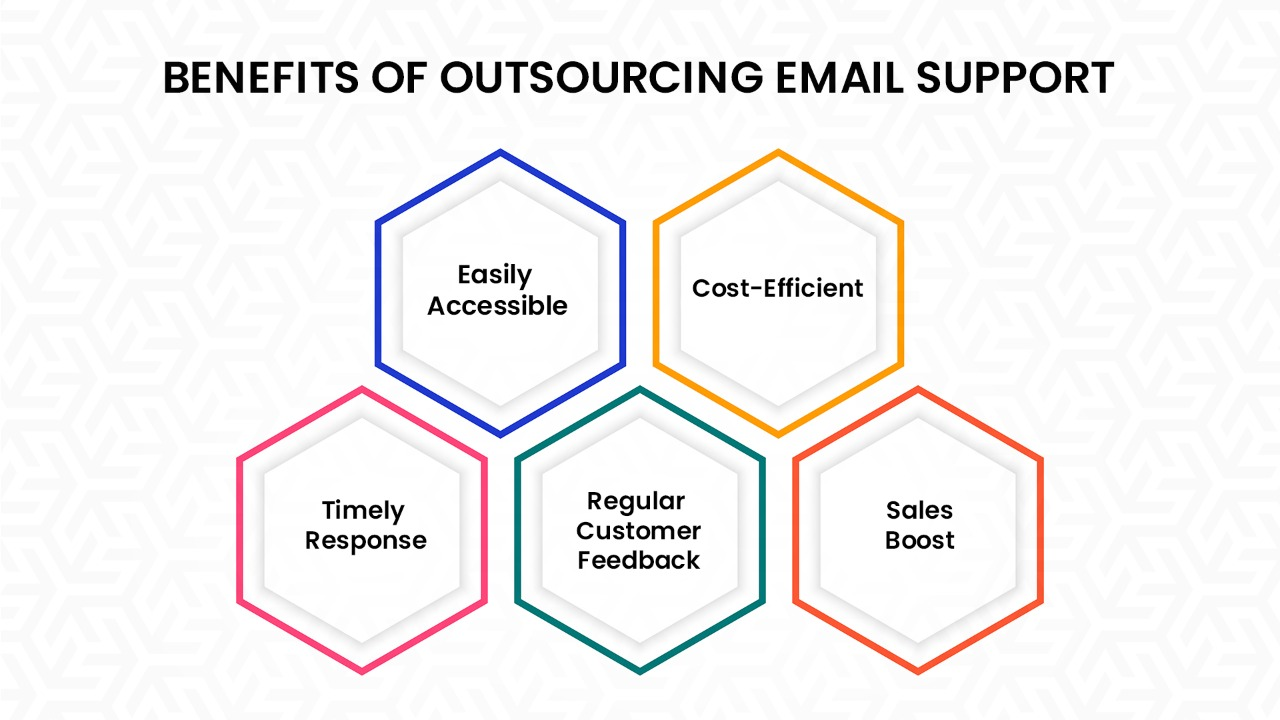Industry-Specific Challenges in BPO Services & How to Overcome Them
Businesses in this dynamic world, BPO companies have emerged as an integral part of organizations worldwide. They help take on the non-core tasks, allowing businesses to concentrate on their primary competencies and drive growth and innovation. The BPO industry has unique difficulties. These challenges are unique due to the country’s specific socio-economic context.
JindalX is a leading BPO in India that helps in providing BPO Customer Services all around the world. Despite steady growth and improvement, the BPO industry faces issues regularly such as data security, effective knowledge transfer, smooth collaboration and open communication are beneficial for outsourcing. Client companies should expect drawbacks when working with a 3rd party service provider.
Possible BPO Challenges and Their Solutions
Before we get started, let us first discuss “What is a BPO?” Business process outsourcing, or BPO, is the practice of a company assigning some tasks to an outside entity. Its primary objectives are to reduce expenses, free up staff members’ time and resources, and enable businesses to concentrate on their core competencies.
Today, the commercial environment often includes the BPO industry. It guarantees cost savings, increased productivity, and access to solutions that would not otherwise be possible internally. BPO presents difficulties that are uncommon for internal teams. This is how companies intend to implement the strategy; to successfully outsource, they need to acquire a new perspective.
Here is the overview of common BPO challenges and valuable solutions to overcome them:
Different Organizational Culture
Through business process outsourcing, organizations may access and utilize people from around the world, but overcoming cultural differences is frequently a significant obstacle. When using BPO, businesses face two diverse types of cultural barriers: corporate and regional.
Why does this happen?
The innate differences between the cooperating organizations are the cause of corporate discrepancies. The geographic distance between the client and the BPO service provider is the cause of regional differences. These differences in company culture have broad effects on team dynamics, communication, understanding, and interpretation, all of which can affect commitment and productivity. Cultural differences increase the likelihood of miscommunications and confrontations between the two groups.
Solution: Gaining knowledge of one another’s geographical and organizational cultures.
Developing an extensive training program specifically designed to familiarize the internal team with the organizational and geographical cultures of the external party is a powerful way to address this difficulty. The BPO business should implement training programs for its staff, with a particular emphasis on the corporate culture and geographic location of the customer.
In the initial weeks, the partnership should be dedicated to fostering collaboration and mutual understanding. This phase prioritizes the assimilation of the client’s culture and ensures alignment with the 3rd party team regarding working style and the overall work environment.
Read Also: Mastering Business Process Outsourcing (BPO): A Comprehensive Guide
Unclear Data Security Protocols and Intellectual Property
BPOs (Business Process Outsourcing) mostly deal with issues related to IP and unprotected data privacy. Revealing vital details, like business assets and procedures, which are given when collaborating with BPO firms. It may also be necessary for you to share resources and tools with the BPO providers.
Therefore, cybersecurity and data protection, ranging from business planning to trade secrets, should be a company’s top priorities. IP and data protection in its entirety are vital, irrespective of the size of the company. Inadequate data management has serious, long-term consequences.
As cyberattacks increased by 50% year over year, each organization faced a record high of 925 weekly cyberattacks globally. The average total cost of a data breach is now 4.24 million.
Solution: Working with reputed BPO companies such as JindalX and crafting NDA (Non-disclosure agreements.
The risk was decreased by signing an NDA or other legally binding agreement. Strict data protocols maintained by the third-party provider reduce the risk of a data breach.
Working with a trustworthy company is another approach to avoid this issue. Although there are many service providers in the BPO industry, not all of them offer strong data security. The International Organization for Standardization (ISO) sets strict security standards, and when choosing a partner, there are a few factors to consider.
Read Also: Pros & Cons of Business Process Outsourcing: The Ultimate Guide
High Employee Turnover
The rate of staff attrition is one of the most significant and persistent problems in BPO. Thus, the average turnover in the outsourcing sector is between 30% and 45%. This implies that client happiness is harmed by BPO suppliers with high attrition rates. Customers who contact your business for assistance may be helped by a new third agent who is not familiar with your customer care protocols and brand language.
Reduced consumer satisfaction is the outcome. Some factors, such as promotion opportunities, work interests, and business culture, influence the turnover rate. If agents believe they are overqualified or underqualified for the position, they may potentially quit.
To supplement their income until they find other employment, several agents also work in contact centers. Others do not think working in contact centers is a good career choice. They can think that the job is monotonous, the atmosphere at work is unpleasant, and the remuneration is inadequate. Compared to older employees, younger workers are more likely to switch jobs.
Solution: Designing higher-quality retention strategies.
Agents inevitably leave. So, implementing better retention strategies and work culture can reduce attrition. Verify if your service provider follows these guidelines:
- Showing appreciation for high-quality work through rewards and incentives.
- Including enjoyable activities and communicating goals will boost morale and increase work engagement.
- Giving agents opportunities for career advancement and growth.
- Introducing agents to the company verticals.
- Improving educational initiatives to help agents become more skilled and devoted to the firm.
Both your company and the BPO provider benefit from high worker satisfaction. According to a University of Oxford study, contented workers are 13% more productive. Exceeding customer expectations, decreasing staff churn, and enhancing workplace satisfaction all depend on providing good benefits and fostering a great culture.
Read Also: How Does Business Process Outsourcing Work?
Difficult Productivity and Performance Measurement
In BPO, controlling performance and measuring productivity can be exceedingly difficult, especially when working with contractors who are remote or in different time zones offshore. The output generated over time was used as a simple ratio to measure productivity. This method fails to consider principal elements like task complexity or service quality.
To assess productivity effectively, one must consider both the amount of time spent and its effectiveness. This means deciding on the right KPIs (Key Performance Indicators) and thoroughly assessing every employee’s performance.
Solution: Using project management and time-tracking tool.
Addressing this challenge, organizations can leverage project management and time-tracking tools, which serve as valuable assets in enhancing productivity across the spectrum. These tools facilitate a range of functions including:
- Real-time monitoring of productive hours within specific time limits.
- Complete monitoring of idle times, computation of idle-time percentages, and sending agents alerts during idle periods.
- Automated generation of productivity reports, furnishing actionable insight into contractor’s time utilization.
- Recording attendance and punctuality records.
- Oversight of the applications and websites accessed by employees.
It is important to remember that time-tracking features may already be included in some BPO price agreements. Vigilantly tracking production levels promotes a better work-life balance and helps identify agents who put in too many hours at the office.
Read Also: 8 Successful BPO Benefits for Businesses of All Sizes
Poor Team Communication and Management
One of the most prevalent BPO issues is inadequate or nonexistent communication. In a survey, 21% of participants said that the most difficult aspect of working with an offshore third-party team is communication.
Even when two people speak the same language, poor communication might still occur because of inadvertent offences or a lack of cultural understanding. The backgrounds, experiences, levels of education, and perspectives of the two teams differ.
Solution: Maintaining open lines of communication and implementing constant contact.
There should be dialogue at every stage of the process. Incorporate video calls, feedback loops, and other forms of contact. Because of the remote location of the external team, a conference cannot be held in a single room.
It is crucial to preserve positive relationships in various contexts because of this. Organizing a video conference as opposed to a call or many messages strengthens your relationship with the third-party team.
It is essential to provide each employee with a sense of respect and belonging. Having a video conference with each other fosters togetherness.
Read Also: Global BPO Trends: New Frontiers in 2024 And Beyond
Conclusion
BPO Companies offer significant advantages such as cost reduction and increased efficiency, but it also comes with its own set of challenges. From cultural differences to data security concerns, high turnover rates, productivity measurement difficulties, and communication issues, navigating these obstacles is crucial for successful outsourcing partnerships.
However, with proactive strategies such as cultural training, robust data security protocols, retention initiatives, effective performance measurement tools, and open communication channels, businesses like JindalX can overcome these challenges and reap the benefits of outsourcing. By addressing these challenges head-on, companies can enhance collaboration, drive innovation, and achieve long-term success in the dynamic world of business process outsourcing.
JindalX stands as a beacon of excellence in the BPO industry, offering tailored solutions to navigate the challenges of outsourcing with finesse. Partner with JindalX today to unlock the full potential of your business and propel it towards unprecedented growth and success.
Connect with JindalX to explore how we can elevate your operations to new heights.




Comments
Post a Comment